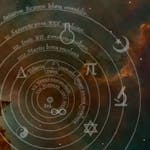Description
In this course, you will :
- Understand how scientists use key terms such as "theory," "fact," "law," "hypothesis," and "model."
- Analyze scientific arguments and fallacies based on the meaning of these concepts.
- Create a foundation for understanding science and scientific debates.
- Recognize the most common misunderstandings that science writers are prone to.
Syllabus :
1. What is a Theory?
- "It's Just a Theory": "Theory" as Down-Player
- "Theories are the Pinnacles of Science": "Theory" as Up-Player
- Why We Need a Neutral Definition of "Theory"
- A Neutral Definition of "Theory": A Classical (But Incomplete) Story
- A Neutral Definition of "Theory": A More Sophisticated Story
2. What is a Fact?
- "You Can't Deny the Facts": A Loaded Definition of "Fact"
- "I Had the Facts Wrong": A Neutral Definition of "Fact"
- Can There Be Theoretical Facts?
3. What is a Law?
- Loaded Definitions of "Law"
- Examples of Laws in Biology and Psychology
- Examples of Laws in Astronomy and Physics
- Unpacking the Neutral Concept of "Law"
- But Are There Any Laws?
- A Quick Word: Are Laws Explanatory?
4. What is a Hypothesis?
- "That's Just a Hypothesis": A Loaded Definition of "Hypothesis"
- A Neutral Definition of "Hypothesis"
5. What is a Model?
- Introduction: What is a Model?
- Maps and Models
- Models as Tools for Reasoning About the World
- How Equations Can Be Models
- Is There a Difference Between a Model and a Theory?
6. Theories, Models, Truth and Reality
- Introduction: Theories, Models, Truth and Reality
- The Challenge of Interpreting Scientific Theories
- Prediction and Truth: Lessons from Ptolemy
- Prediction and Truth: Lessons from the Kinetic Theory of Gases
7. Test Yourself: "Fact vs. Theory vs. Hypothesis vs. Law ... Explained!"
- The Motivation for the Video
- "Scales of Truthiness"
- The Fundamental Error
- Problems With Defining Facts in Terms of Observations
- Problems With Defining Hypotheses as Starting Points for Inquiry
- Problems With Defining Theories as Well-Supported
- Problems with Defining Evolution as an Observable Fact
- Problems with Defining Laws in Terms of Observations
- Can Laws Explain, or Do They Just Describe? Kepler, Newton and Einstein
- Analyzing the Last Slide
- Who is to Blame?
8. Why is Science Literacy Important, and How Should We Teach It?
- Should We Expect Our Politicians To Be Science Literate?
- Why Most People (Even Science Phds) are Scientifically Illiterate
- A Curriculum For Teaching Genuine Science Literacy: Overview
- The Logic of Science
- The Methods of Science
- The Landscape of Science
- The Ethics of Science









